In today’s era, it’s really difficult to protect your privacy online. Social media apps, internet browsing and different software can make the privacy of data a really ambiguous concept. Using the VPN is a good way to protect your privacy on the internet. By using a VPN, you can protect yourself from having your IP address or other personal information revealed to others.
Without a VPN, your Internet Service Provider (ISP) can see everything you do on the internet. If you have never used or heard the name of VPN before, then obviously you are a dummy as this word is unknown to you. So, let’s explain what a VPN actually is and how you can use it to protect your privacy. You can easily follow this VPN for beginners guide for setting up your VPN service.
Table of Contents
What is VPN?
VPN stands for virtual private network, and the service protects you from online threats by encrypting your data on its way to your provider. This type of internet security is particularly helpful if you use public WiFi. This type of service lets you control what content you access and who can see your data. You can choose to use a VPN service on any device, from desktop PCs to mobile phones and tablets.
Why are VPNs popular?
VPNs have become increasingly popular in recent years due to their ability to provide secure and private access to the internet. VPNs are popular because they allow users to bypass geographic restrictions and access content that may be blocked in certain countries.
Additionally, VPNs offer a level of security and privacy that is unavailable when using the internet without one. By encrypting all internet traffic, VPNs protect users from prying eyes, including government surveillance, hackers, and other cyber criminals. They also allow users to browse the internet anonymously, which can benefit those concerned about their online privacy.
How to choose a VPN?
Choosing a VPN for your needs can be quite confusing, but there are some guidelines to follow.
1. Security
First, determine what kind of security you need from your VPN. Security is a top priority, and you need to choose a secure VPN such as AstrillVPN. The security of your VPN depends on the encryption and technology used by the provider. It is better to opt for a protocol that uses 256-bit AES encryption, OpenVPN, or IKEv2 to get the highest level of security.
2. Location
The location of your VPN provider and its privacy policy also matter. It is best to avoid VPNs located in countries that belong to the 5/9/14 Eyes alliance. Most VPNs offer multiple locations, and they can be used to circumvent regional censorship.
3. Operating system compatibility
When it comes to choosing a VPN, you should choose one that is compatible with your operating system. The most common VPNs use OpenVPN, but there are other VPN protocols available. OpenVPN is the most versatile protocol, and has the most secure connection. Some VPNs even let you choose a protocol according to your own needs.
4. Kill-Switch Feature
The next step is to check whether a VPN has a kill-switch feature. This feature protects your data as it kills the internet if VPN gets disconnected. It helps in protecting privacy by masking the IP and DNS. It continuously monitors your connection. AstrillVPN supports the kill-switch feature and make it more reliable to use.
5. Supporting Devices
You need to determine which platforms the VPN supports. Most VPNs work on most platforms, but some don’t, so you’ll need to check before signing up for one. If you have an iPhone and a Windows or even a MAC, then Astrill VPN is supported on all devices.
Is it legal to use a VPN?
VPNs are not legal everywhere, but vpns are legal in most of the countries like the United States and India. They are widely used in countries around the world, and millions of users across the globe use them for privacy and anonymity. They allow users to access websites without worrying about being tracked or exposed to fraud.
However, some countries have more relaxed regulations. In Latvia, for instance, VPNs are legal. The government has tried to censor the internet, but this was met with widespread resistance. Furthermore, VPN use is also legal in Lebanon, while the government of Lebanon has been known to block popular websites. Even in the Bahamas, the government has tried to censor certain websites. In fact, it has mistakenly blocked Facebook and Google in the past. Despite these restrictions, VPN usage is legal in these countries.
What’s the difference between a VPN app and a VPN extension?
While VPN extensions and apps work the same way, VPN apps have a lot more configuration options. A VPN app protects your entire device from prying eyes. A VPN app encrypts your entire Internet traffic, while a VPN extension just masks your IP address for casual browsing. Before committing to a VPN service, do your research and make sure that you’re using a trusted vendor. By using a VPN extension, you can switch it on and off at will. While VPN extensions and apps are generally cheaper and more convenient, a VPN extension is not always as secure.
If a VPN is enabled on your computer, it will also protect other tools connected. The best and fastest VPN such as Astrill VPN can help you secure your data and can provide an incredible experience while surfing.
Short difference between proxy and VPN
While proxy and VPN are both useful for various purposes, they are very different from each other. While proxy provides some privacy protection, VPN provides more advanced functions that allow you to hide your true location and access geo-restricted content. VPNs are also more reliable than proxy servers, which may drop your connection often.
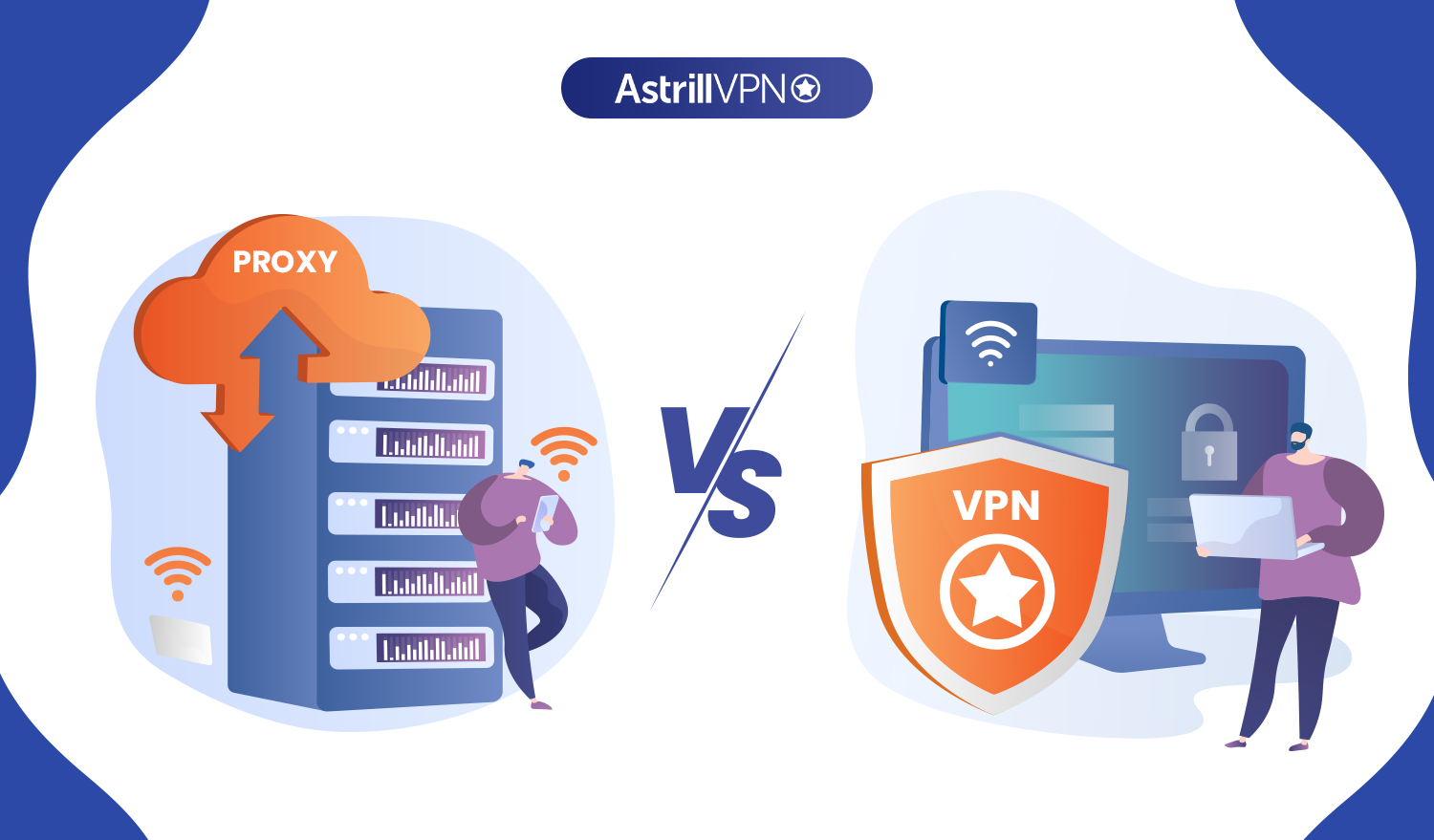
Proxies are simple tools that allow you to mask your location and IP address. They bypass firewalls and region locks to provide an additional layer of privacy to your online activities. Most consumer VPN services could be considered proxies. VPNs are a more sophisticated service that gives you remote access to office resources and can protect your online privacy.
VPNs encrypt all data, which makes your data secure. They can also help you speed up your connection, by changing the server, protocol, or encryption level. However, VPNs are more expensive than proxy servers. Most free proxies have limitations on the amount of data they can store or switch servers. For this reason, most people should invest in a paid VPN.
How does VPN work?
An example of how a VPN works:
Let’s say you want to access the internet from a coffee shop or public WiFi network. Without a VPN, all of your internet traffic passes through the coffee shop’s router. This means the coffee shop can see your IP address and monitor your internet activity.
When you connect to a VPN, all of your internet traffic is instead tunneled through an encrypted connection to the VPN server. Your traffic then exits the VPN server and continues to its destination on the open internet.
To the websites and services you visit, it appears as though the VPN server’s IP address is the origin of your internet traffic, not your actual device. This hides your true IP address and location from anyone monitoring the network, giving you web anonymity and security.
In summary, when you use a VPN, your internet traffic is:
- Encrypted – Data is scrambled so that only the VPN server and your device can decrypt it.
- Routed through a remote server – Your traffic’s origin appears to come from the VPN server’s location, not your actual device.
- Anonymous – Your true IP address and location are hidden from the websites and services you visit.
What should you look for in a VPN service?
Before you begin shopping around for a VPN service, make sure to assess your needs and choose a provider that meets them. There are many different options available, and every user has their own unique needs. You may find that a home-grown solution or a router-based VPN is a great choice for your needs.
A VPN can also help you bypass geo-restrictions in your location. However, it’s important to choose a provider that has servers in the country in which you wish to view content. A VPN service can be used on your desktop computer, laptop, or mobile phone to provide you with privacy and security, especially when you’re using public Wi-Fi. This service provides protection from censorship and data breaches and helps you surf the internet safely.
Why it is Important to have a VPN?
When you connect to the internet without a VPN, your online activities can be monitored by your Internet Service Provider (ISP), government agencies, and cyber criminals. They can see the websites you visit, the files you download, and your sensitive information like usernames and passwords. This can put your privacy at risk and make you vulnerable to cyberattacks.
Using a VPN can help protect your privacy and prevent your online activities from being monitored. A VPN encrypts all your internet traffic, which means that your ISP and other third parties won’t be able to see what you’re doing online. Instead, your traffic is routed through a secure server operated by the VPN provider, which adds an extra layer of security and anonymity to your online activities.
In addition to privacy protection, a VPN can also help you bypass geo-restrictions and access content that may be blocked in your region. For example, if you’re traveling to a country where certain websites or services are unavailable, you can use a VPN to connect to a server in a different country and access those services as if you were there.
Overall, a VPN is essential for anyone who values online privacy and security. It can protect you from cyber threats and allow you to access content from anywhere in the world.
Key Advantages of using a VPN
Here are some of the benefits of using a VPN:
1. Enhanced Online Security
Using a VPN is an effective way to enhance online security. When you connect to the internet via a VPN, your online traffic is encrypted, making it difficult for cybercriminals and other malicious actors to intercept and access your sensitive information. A VPN also protects against various cyber threats, such as malware, phishing attacks, and man-in-the-middle attacks.
2. Anonymity and Privacy Protection
Another benefit of using a VPN is anonymity and privacy protection. When you use a VPN, your IP address is hidden, and your online activities are routed through the server. This makes it challenging for anyone to trace your online activities back to you. A VPN protects your online privacy by preventing your ISP and other third parties from monitoring your online activities and collecting your data.
3. Bypass Geographic Restrictions
A VPN allows you to bypass geographic restrictions and access content that may be blocked in your location. For instance, if you want to access a website or online service that is not available in your country or region, you can use a VPN to connect to a server in a different country where the service is available. By doing so, you can bypass geo-restrictions and access the content you want.
4. Cost Savings
Using a VPN can also result in cost savings. Some online services and products may be cheaper in certain countries, and by connecting to a VPN server in that country, you can access those services and products at a lower cost. For instance, if you want to book a flight or hotel reservation, you can use a VPN to connect to a server in a different country where the prices are lower.
5. Increased Productivity
A VPN can increase your productivity by allowing you to securely access your company’s network and resources anywhere in the world. If you work remotely, a VPN can help you connect to your work resources and collaborate seamlessly with your colleagues. Additionally, a VPN can help you access resources and services that may be restricted in your location, which can improve your work efficiency.
6. Avoiding Internet Throttling
Lastly, a VPN can help you avoid internet throttling. Some ISPs may slow down your internet connection if they detect that you’re using certain types of services, such as streaming video or torrenting. Using a VPN can prevent your ISP from seeing the kind of traffic you’re generating and avoid being throttled. This can result in faster internet speeds and a better online experience.
Getting Started with a VPN?
A VPN, or virtual private network, allows you to browse the internet privately and securely. Here are the basic steps to use a VPN:
- First, you need to sign up for a VPN service. There are many options, so do some research to find one that fits your needs in terms of cost, speed, and security features.
- Once you’ve chosen a AstrillVPN and created an account, you’ll need to install the VPN provider’s software on your device. This is typically an app for smartphones and tablets or a program for computers. The software will contain your login information to connect to the VPN.
- To connect to the VPN, open the app or program and log in with your account details. The software will scan for the best VPN server location for you based on speed, load times, and other factors. You’ll then click “connect.”
- When the VPN is connected, all of your internet traffic will be encrypted and routed through the VPN’s server. This means your IP address will appear to be that of the VPN server, rather than your actual location.
VPNs are useful for accessing content that may be geo-restricted, protecting your data and identity online, circumventing censorship, and securing public WiFi connections. However, you’ll typically experience slightly slower internet speeds while connected to a VPN due to the encryption. If you still feel that you need guidance, you can easily watch several VPN tutorials available on Youtube.
Difference between a VPN and DNS
While both VPNs and Domain Name System (DNS) services can help protect your online privacy, they function differently. A VPN encrypts all internet traffic and routes it through a remote server, which can be located in a different country. This can help protect your online privacy and allow you to bypass geographic restrictions.
DNS, on the other hand, is a system that translates domain names (such as google.com) into IP addresses (such as 172.217.6.142). DNS services can help protect your online privacy by encrypting these requests and preventing third parties from monitoring your internet activity. However, they do not encrypt all internet traffic as a VPN does.
Difference between a VPN and a Firewall
VPNs and firewalls are both important tools for protecting your online security, but they function in different ways. A VPN encrypts all internet traffic and routes it through a remote server, which can be located in a different country. This can help protect your online privacy and allow you to bypass geographic restrictions.
A firewall, on the other hand, is a network security system that monitors and controls the incoming and outgoing network traffic based on predetermined security rules. Firewalls can help protect against cyber threats like malware, hacking, and phishing attacks. While VPNs and firewalls are essential for protecting your online security, they serve different purposes and are used in different ways.
Is using a VPN safe?
A VPN is a great way to protect your personal information when you are using the internet. When you browse the internet, your IP address is exposed to third parties and your personal information can be stolen by hackers. This is not a problem if you only use the internet for fun and don’t do anything sensitive, but it’s important if you’re browsing sites that could be considered sensitive, so basically it is not safe to use in all scenarios.
How to setup VPN quickly?
If you are new to VPN, or have never used one before, this guide will help you get up and running.
For using Astrill VPN, you need to set it up first on your desktop. Below are the steps explained with images for your convenience.
- To start, download and install the Astrill VPN app onto your computer. The Astrill VPN is available for Windows, macOS, iOS, Android, Linux, and certain routers.
- Open the Astrill VPN desktop platform.
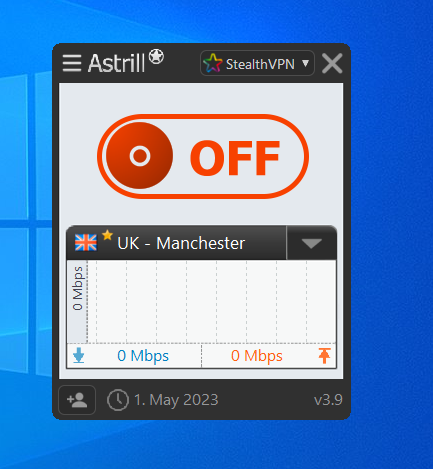
- Click on the drop-down button in the top right corner. From there, you will need to choose the protocol from the list.
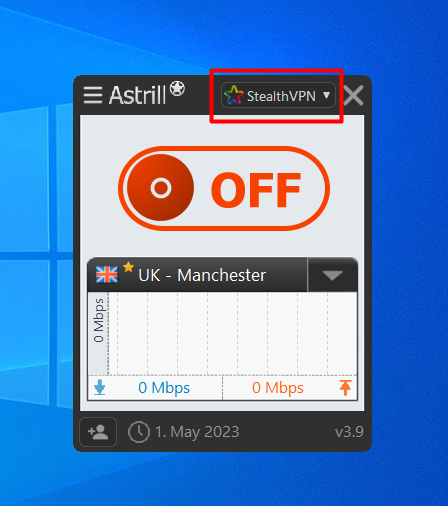
- Select the server for connecting.
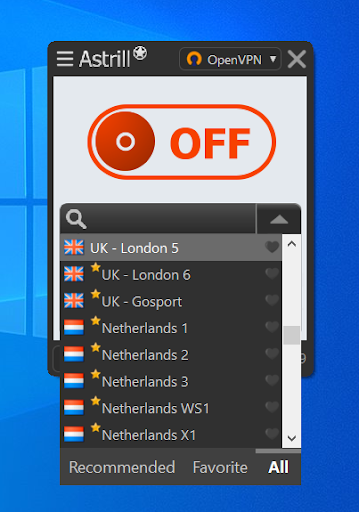
- Switch “On” button.
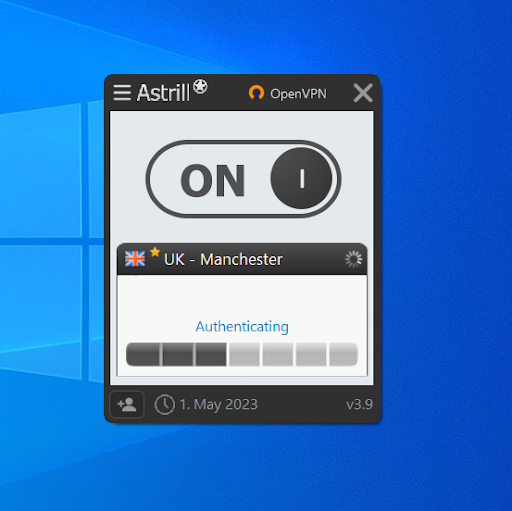
The app is available for both Mac and Windows systems, and it offers a kill switch to prevent your IP from being revealed. The app also comes with an app guard feature for Windows, which automatically blocks apps that don’t have a secure VPN connection. Moreover, the App Guard feature works even when the Astrill desktop application is not open.
The Bottom Line
This guide can prove to be really useful for dummies as it will help them understand the VPN and how it works. Even though the setup is simple, it can still help everyone who is trying to understand and use VPN in daily life.


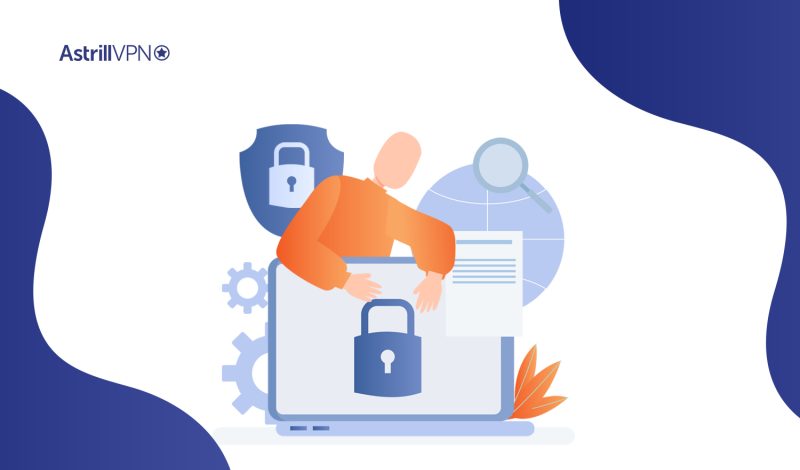
No comments were posted yet